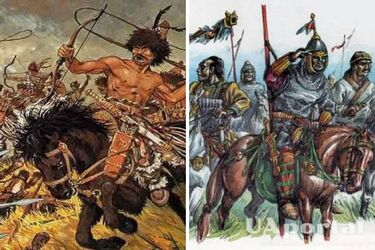Scientists discover that drought forced the Huns to become brutal robbers: had devastating consequences for Rome

Scientists at Cambridge University have suggested that the Huns' attacks on the cities of the Roman Empire were provoked by a drought. There was no food, so the Huns were forced to abandon farming and cattle breeding.
This is reported in the Journal of Roman Archaeology.
The extreme droughts of the 430s and 450s AD had a negative impact on the lives of the tribes in the Danube border provinces of the eastern Roman Empire. Therefore, the Huns were forced to take measures to survive, becoming "cruel robbers."
Scientists discovered this by reconstructing the hydroclimate from annual tree rings and through archaeological and historical evidence.
According to the study, the most destructive Hun raids of 447, 451, and 452 AD coincide with a drought in the Carpathian Basin. According to scientists, the main goal of the Huns during attacks on cities was cattle and food, not gold.
As a reminder, archaeologists have found a mausoleum dating back to the 15th century in Kazakhstan.
If you want to get the latest news about the war and events in Ukraine, subscribe to our Telegram channel!
